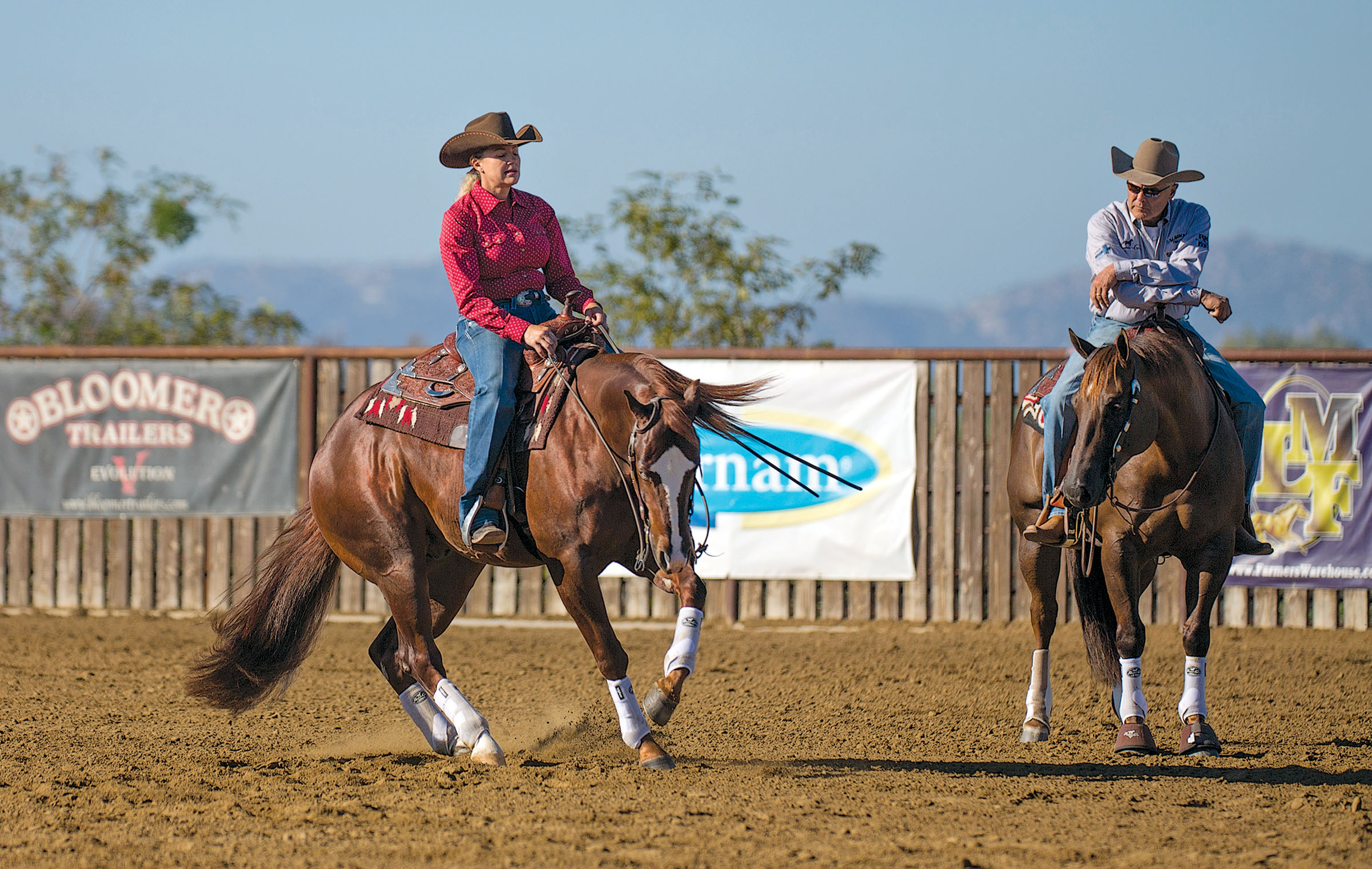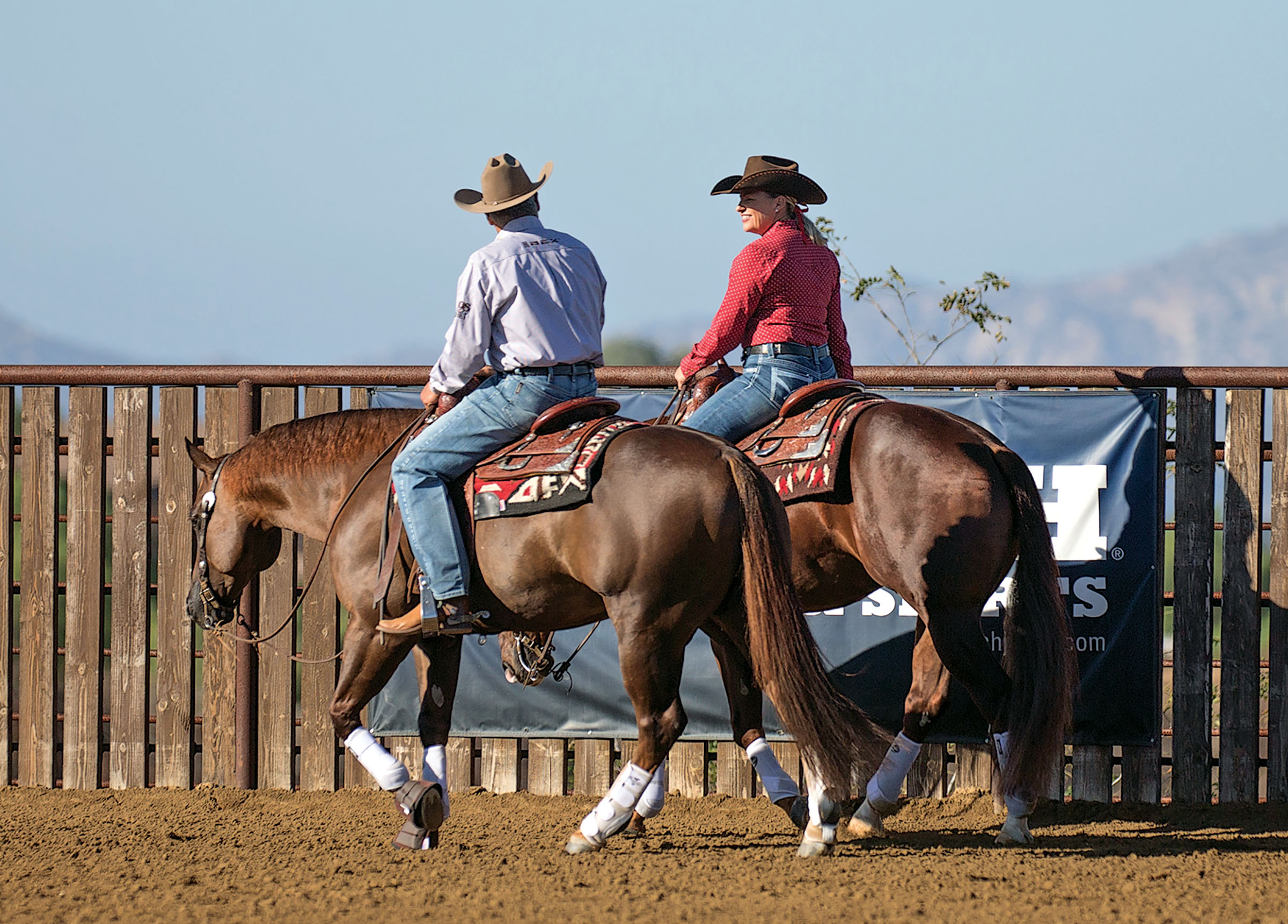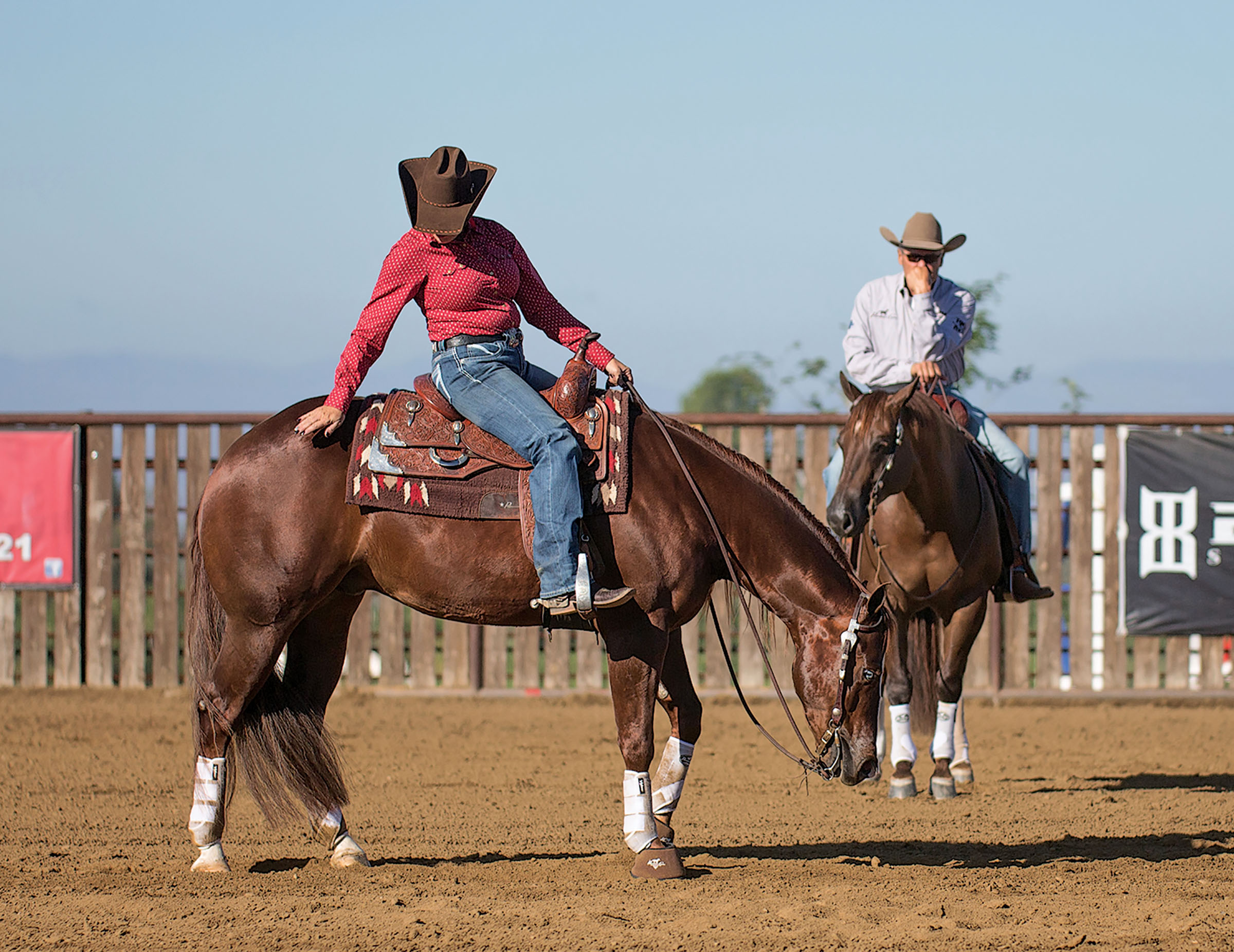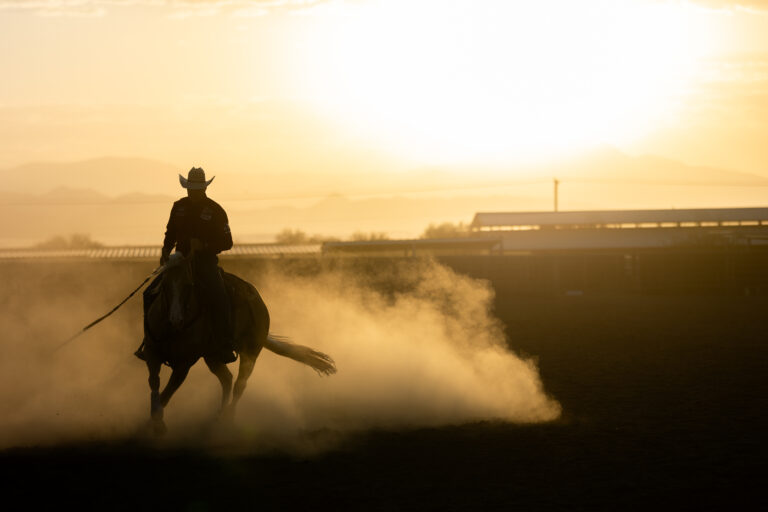
If you’re a non-pro or amateur competitor, horses are most likely your hobby. You enjoy the preparation and showing experience, but you also thrive on improving, learning, and competing. It’s a pretty great way to spend your free time.
But there are mistakes I see amateur riders make that hold back your enjoyment and hinder your competitive success. Keep these seven common errors in mind to ensure that you get the most out of every ride.
Mistake #1: Not Riding Enough.
I’ve said it many times: The non-pros who ride are the non-pros who win. Granted, there are factors that you can’t control such as the weather, health issues with you or your horse, family emergencies, or work problems. But if you can’t put in at least three days a week in the saddle, then you can’t be disappointed when you don’t mark the highest scores or see your name at the top of the judge’s card.
Putting in saddle time at home and in lessons enhances your connection with your horse, so you have a better idea of where he excels and where you might need to help him. It also teaches you to stay out of his way, allows you to learn how much cue he needs for a maneuver, and just plain makes you a better rider.
Mistake #2: Not Focusing in the Saddle.
I understand that riding for you is a social event. You probably have friends at the barn and shows who you enjoy spending time with, and you should! This is your hobby and should be fun. But if you come to the barn for an hour and spend 20 minutes catching up with friends, be sure that those 40 minutes in the saddle are completely focused on your horse and your trainer, if you’re having a lesson. If you have an extra-chatty friend, let her know that you’ll have time to visit after your lesson, but your horse is your priority when you’re riding.
And leave your phone in the truck or tack room. You can live without your text messages, emails, phone calls, and social-media posts for 40 minutes.

Mistake #3: Self-Sabotage.
If your horse is tougher to change leads, for example, you might be inclined to ride into the arena hoping you can get your lead change. If that’s your thought process, you can be sure you’ll have problems. Worrying about the negative instead of focusing on the positive sets you up to fail. It’s called a “self-fulfilling prophecy.” If you think a bad situation is going to happen, it probably will.
Instead, project in your mind the best run you can realistically have. If your horse usually marks around a 71 in a reining pattern, visualize the best 71 you can achieve. Focus on the positive rather than the negative, and you’ll have a better chance of success.
Mistake #4: Ignoring Your Trainer.
You pay an instructor hard-earned money to teach you to ride, train your horse, and compete. Why would you throw that money in the garbage by ignoring the person you pay to educate you? Sometimes it’s not blatantly ignoring—maybe you’re distracted by your phone or your friends. Or maybe you’re loping around the arena in La La Land, thinking about what you’re going to order for dinner. Either way, pay attention to what your trainer tells you. He’s not speaking (or yelling) to hear his own voice; he’s doing it so you can get the most out of your experience and be successful.

Mistake #5: Succumbing to High Highs and Low Lows.
There can be a lot of up and down in horse showing. Amateur riders and pros alike have to learn to take the good with the bad. Part of winning is learning to lose. Part of making great decisions in clutch situations is making mistakes.
When you make a mistake, learn from it and move on. Don’t let it haunt you into your next ride. Put it behind you and try again, with more knowledge to draw from. On the opposite side, don’t hang onto your latest win too long, either. Remember the hard work it took to get there, and then put in that much effort, plus more, to exceed your achievement.
Mistake #6: Blacking Out in the Pen.
I ask each of my non-pros to tell me about their run when they come out of the pen. If it’s a cow horse class, I ask about boxing, going down the fence, circling up—even what color the cow was. You’d be surprised how many of them black out in the pen and have amnesia when I ask them to recall their performance. When you can focus enough to recall every step in the show pen, then you can learn from each run and start thinking when you’re in the moment of competition. Thinking in the show pen is how you become a winner.
Mistake #7: Missing Learning Opportunities.
You can learn from things going on right in front of you every time you’re at the barn, at a horse show, taking a lesson—virtually any time you’re around your horse. I know that horses are your rest and relaxation, so I’m not saying you need to treat all of your barn time like a classroom, but be observant.
When you walk into your horse’s stall, pay attention to his demeanor. When grooming, look for scabs or other indicators that he might’ve caught himself on something. While riding, feel his cadence, watch his ears, and look for his response to your cues. You can learn so much about your horse in each of these situations.
Furthermore, watch your trainer ride, sit with him as he observes the warm-up pen, ask questions. It’s a great opportunity to understand why he does something or why a horse reacts in a certain way. Capitalize on learning opportunities to push yourself to the next level.






